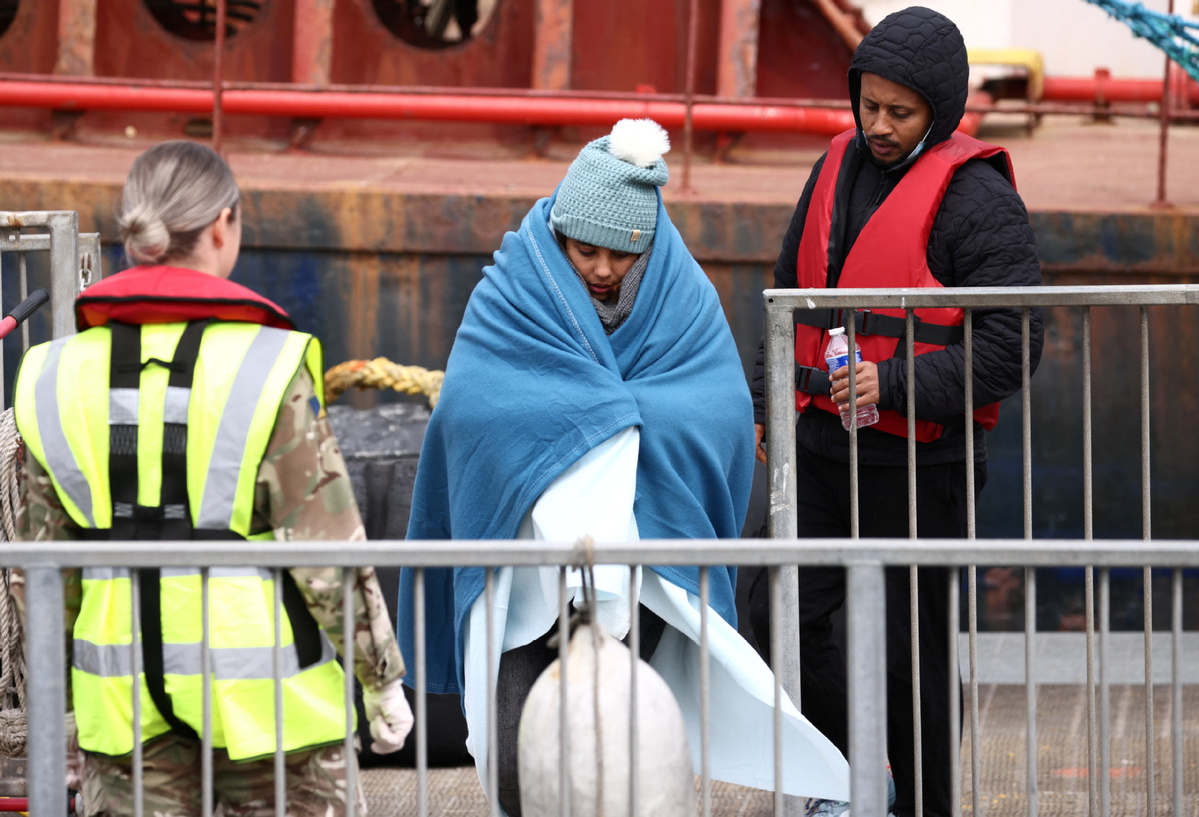British policy treats refugees as commodities
By Xin Ping | chinadaily.com.cn | Updated: 2022-05-07 15:10

While the world is increasingly worried about the global refugee crisis recently exacerbated by the Russia-Ukraine conflict, many were dumbfounded by an “innovative” plan announced by the government of the United Kingdom. In order to deter illegal migrants from crossing the English Channel in small boats, asylum seekers will be flown more than 6,000 kilometers to Rwanda, where they will be put in holding centers while their asylum claims are processed. Britain has paid Rwanda an initial $156 million for a five-year trial plan, and will also pay Rwanda for each migrant the African nation accepts.
The plan has immediately drawn wide criticism both in Britain and elsewhere. Human rights organizations and campaigners describe this scheme as “inhumane” and “cruel” and, in the meantime, “expensive” and “ineffective”. Staff of the British Home Office said they feel “nothing but the deepest shame” about the “ungodly immoral” policy. The United Nations High Commission for Refugees “strongly opposes the UK to export asylum”, stressing that “people fleeing war, conflict and persecution deserve compassion and empathy, and should not be traded like commodities and transferred abroad for processing”.
As a signatory to the United Nations Refugee Convention as well as a major developed country, the UK is expected to play its due role in addressing the global immigration and refugee crisis. However, the UK seems to be employing every possible measure and policy to pursue and maximize its self-interest, while forgoing its responsibilities and moral standards.
While a vast majority of immigrants and refugees are being forced to move from poor and war-torn areas to wealthy and stable societies in hopes for a better life, the UK government is striking a deal to send them back. It is sad and ironic that wealthy and developed countries are always able to shirk their responsibilities and obligations. Under such a deal, the UK’s international obligation of refugee protection is successfully subcontracted to an African country. Is that kind of “international division of labor and cooperation” a great “innovation”? Shall we applaud for the power of capital?
What makes many people queasy about this deal and policy is that it shows no sympathy to the vulnerable, and no respect to humanity. Many worry that such transferring and relocation arrangements would only magnify the risks and hardship faced by the refugees. Even a British Member of Parliament (MP) described such a move as “creating a British Guantanamo Bay”.
However, people shouldn’t be surprised by the British government when it comes to “hostile” immigration policies. Take as an example the Windrush Scandal which began to surface in 2017 when hundreds of Commonwealth citizens had been wrongly detained, deported and denied legal rights. Many of them had been born British subjects and arrived in the UK before 1973, particularly from Caribbean countries, as members of the “Windrush generation”. Due to the government’s “Hostile Environment” legislation announced in 2012, despite living and working in the UK for decades, many were told they were there illegally because of a lack of official paperwork. The result is that they lost their access to housing, healthcare, bank accounts and driving licenses. Many were even placed in immigration detention, prevented from travelling abroad and threatened with forcible removal, while others were deported to countries they hadn’t seen since they were children.
The Scandal provoked widespread condemnation of the government’s failings, with calls being made for radical reform of the Home Office and the UK’s immigration policy. According to a review to find the root causes of the Scandal and learn lessons from it, the Windrush Scandal was not an accident, but the inevitable result of policies designed to make life impossible for those without the right papers, and to reduce non-white immigration from the Commonwealth.
For those affected by the Windrush Scandal, justice has still not been given. Meanwhile, the UK government is going further on the track of “hostile” immigration policy. In July 2021, the Nationality and Borders Bill was put forward by the Home Office as "delivering the most comprehensive reform in decades to fix the broken asylum system”. However, the Bill received fierce criticisms, repeated scrutiny and numerous amendments. According to Siobhán Mullally, the UN Special Rapporteur on Trafficking in Persons, especially for women and children, "the Bill fails to acknowledge the government’s obligation to ensure protection for migrant and asylum seeking children, and greatly increases risks of statelessness, in violation of international law."
The UK’s "refugee subcontracting" plan is by no means an innovative cure for the refugee crisis, but a slap in its own face and a laughing stock to the world. It reminds us once again the hypocrisy of the Anglo-Saxon countries.
The author is a commentator on international affairs, writing regularly for Global Times, China Daily etc..
The opinions expressed here are those of the writer and do not necessarily represent the views of China Daily and China Daily website.
If you have a specific expertise, or would like to share your thought about our stories, then send us your writings at opinion@chinadaily.com.cn, and comment@chinadaily.com.cn.
























